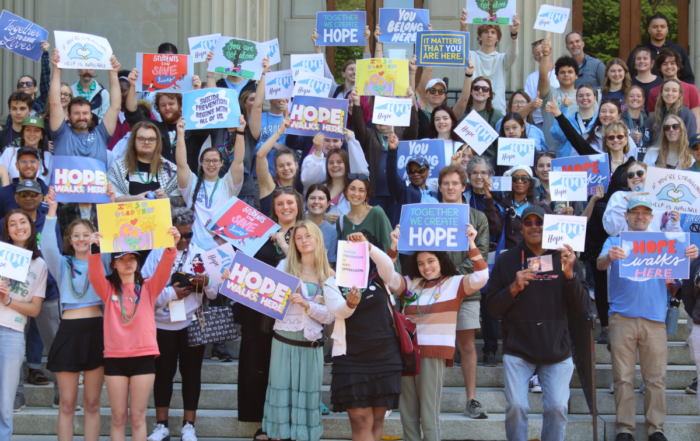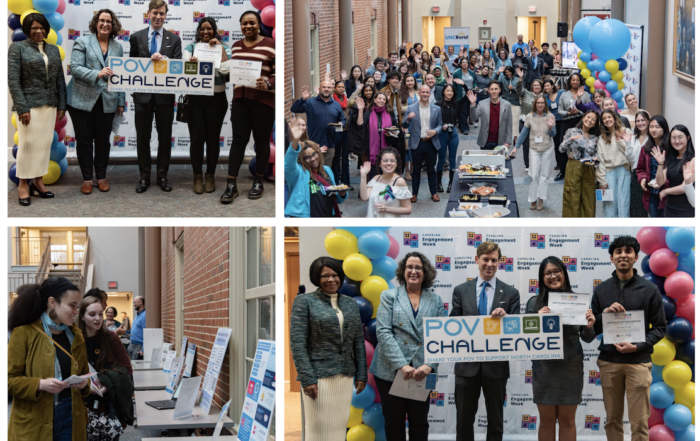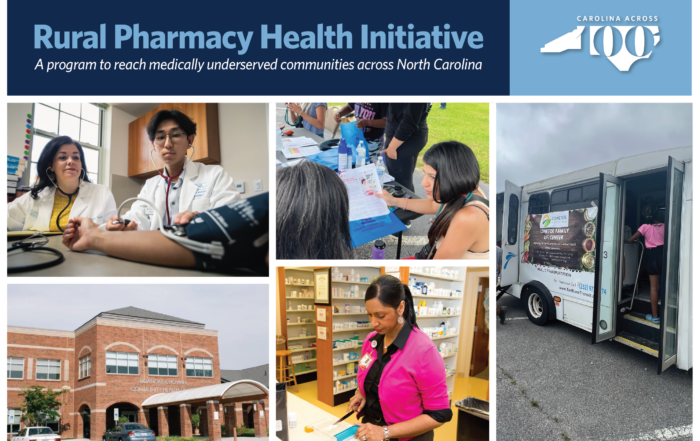Employment | Health
How employers can support people with mental health challenges
by Pavani Peri
October 24, 2023

While campaigns to push Diversity, Equity, and Inclusion champion gender and race diversity in the workplace, they also prioritize the importance of having people with mental health challenges in the workplace. As the labor shortage increases, and as mental health continues to deteriorate, especially in North Carolina’s rural population, it becomes increasingly important for employers to learn how to successfully hire and retain employees with mental health challenges.
Mark Simon, who works with the Peer Support Core at UNC and the Carolina Center for Healthy Work Design and Worker Well-Being, also has his own business presenting for and consulting with businesses on how to recruit and retain employees with mental health challenges. “The labor shortage has pushed employers to broaden their recruitment strategies, and to look into populations that have been traditionally overlooked. Beyond that, people who have experienced mental health crises have overcome serious adversity. That quality brings a strong work ethic and outsized benefits to employers.” says Mark.
Beyond hiring, creating healthy workplaces for people experiencing mental health challenges has to be a part of any company’s DEI strategy. A healthy workplace, according to Mark, is one where employees can bring their full selves, can talk about their challenges without fear of being penalized, and can ask for flexibility while achieving their goals. “People who feel comfortable bringing their full selves to work are more productive in the workplace–a mutual benefit for both the employee and the employer.” says Mark.
Positive workplaces are also structured. Employers should prioritize having structured roles that are designed to foster employee success. “Employers must create opportunities for success. Jobs with unclear roles, blurry delineation of work, and unset expectations do not lead to successful outcomes for anyone, especially those experiencing mental health challenges.” says Mark.
Employers need to address their hiring challenges by building the infrastructure within their own companies to be able to support more diversity–diversity in race, gender, and lived experience. Only then, will there be structured, thriving, and comfortable workplaces for all people.
Carolina Across 100 is a five-year initiative charged by Chancellor Guskiewicz and housed at the School of Government’s ncIMPACT Initiative. This pan-University effort, guided by the Carolina Engagement Council, will form meaningful partnerships with communities in all 100 North Carolina counties to respond to challenges stemming from or exacerbated by COVID-19. “Our State, Our Work” is the first program of Carolina Across 100, connecting young adults to living wage employment opportunities. “Our State, Our Wellbeing” is the second program, focused on improving mental health and reducing suicide in North Carolina.






